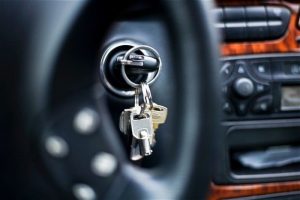Car Key Replacement FAQs
What is the difference between getting my replacement key from the manufacturer and an auto locksmith?
The manufacturer will usually be able to have your key replaced just from knowing your vehicle ID. You usually get your replacement key within the week. You know your manufacturer will have the key type you require.
The auto locksmith will have the ability to generate a new key on the spot. While it might not be a genuine brand replacement, your new key will be just as good (if not better) than the manufacturer key. The auto locksmith can reprogram your vehicle on the spot, so that any lost/stolen keys are unable to start the vehicle. The auto locksmith comes to you, meaning you can still go to work on time. Most of the time, you will pay a lot less for the convenience of an auto locksmith.
What is cut to copy?
This is where the key is cut using the existing key as a template.
What is cut to code?
Some vehicle keys can be cut using codes taken from the vehicle VIN number or from other sources.
What is key cloning?
This is where the key is completely copied including the data on the transponder that talks to the car. While there may be two keys, the car will believe there is only one. This is important to know because some vehicles must have two separate keys programmed.
What is a vehicle PIN?
This is a code that works like the pin number on your cash card. Without your pin, you can’t draw out cash. Without a vehicle PIN, you can’t extract the information needed to program new keys.
Can I buy replacement keys on line?
Yes, and they can be quite cheap. But often, there are hidden extras, like programming the remotes to your car.
Can I call my breakdown service company if I lock my keys in my car?
Yes you can, but they often call an auto locksmith and you then have to pay. As an example, I was called by a breakdown service provider recently. The breakdown engineer took an hour to get to them, spent two hours trying to fish the keys out of the vehicle with the top of the door wedged slightly open and failed. He called me. Within 45 minutes, I had arrived, opened the vehicle and was on my way home.
What are the most common mistakes people make?
In no particular order; shutting keys in the boot without having the main doors unlocked, leaving the spare key 200 miles away at home when going on holiday, letting children play with the car keys, letting the remotes go way past their best condition, treating remotes poorly, letting batteries die, losing keys on the beach, not getting a replacement when the first key is lost, buying a vehicle with only one key (who has the other, and do they know your address?
Why should I get new keys when buying a second hand car?
How well do you know the seller? Most of us buy cars from someone we don’t know. We often give over our address if the vehicle is being delivered, or if we are taking finance, etc. But we don’t know if the seller has already had extra keys made. If you are paying out thousands of pounds to have a car, is it not wise to pay a little more and make sure the vehicle will only drive away from your driveway with keys you possess?
How do I know I am paying the right price?
Get quotes. Two or three at least. A good auto locksmith will advertise prices on their website, but these will be guidance only as the cost of parts and software packages vary a lot between manufacturers. Some work is simple, other work might involve having to get behind your dashboard and removal of computer chips. A difference of just one year can make a particular vehicle much harder to deal with. In rare cases, the auto locksmith might have to walk away unable to do anything. If he is any good, he will not charge you when this happens, unless you have made some prior agreement. If you get three quotes, and one is much less than the other two, investigate further before accepting the cheapest quote. Has he quoted the full job, or been a bit vague? People who quote too little are often not properly trained and are more likely to do something that harms the computer in your vehicle. If that problem takes a while to arise, they will not be around when you go after them for damages.
If you have any questions you would like answered, please contact through any method on the contacts page.
Thanks for reading.
admin August 31, 2017
Car keys cut / car keys lost / lock replacement / reprogrammed car keys /

